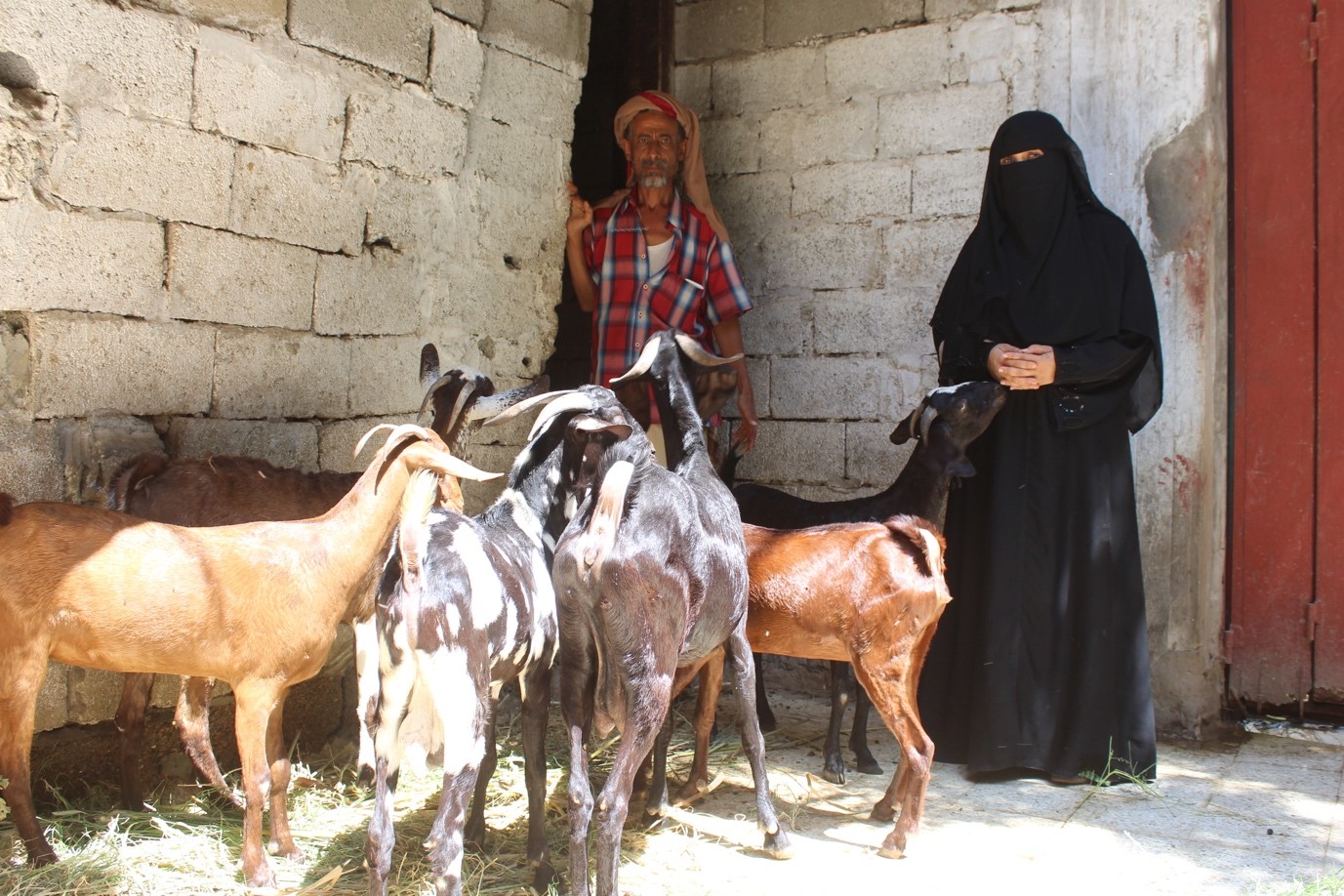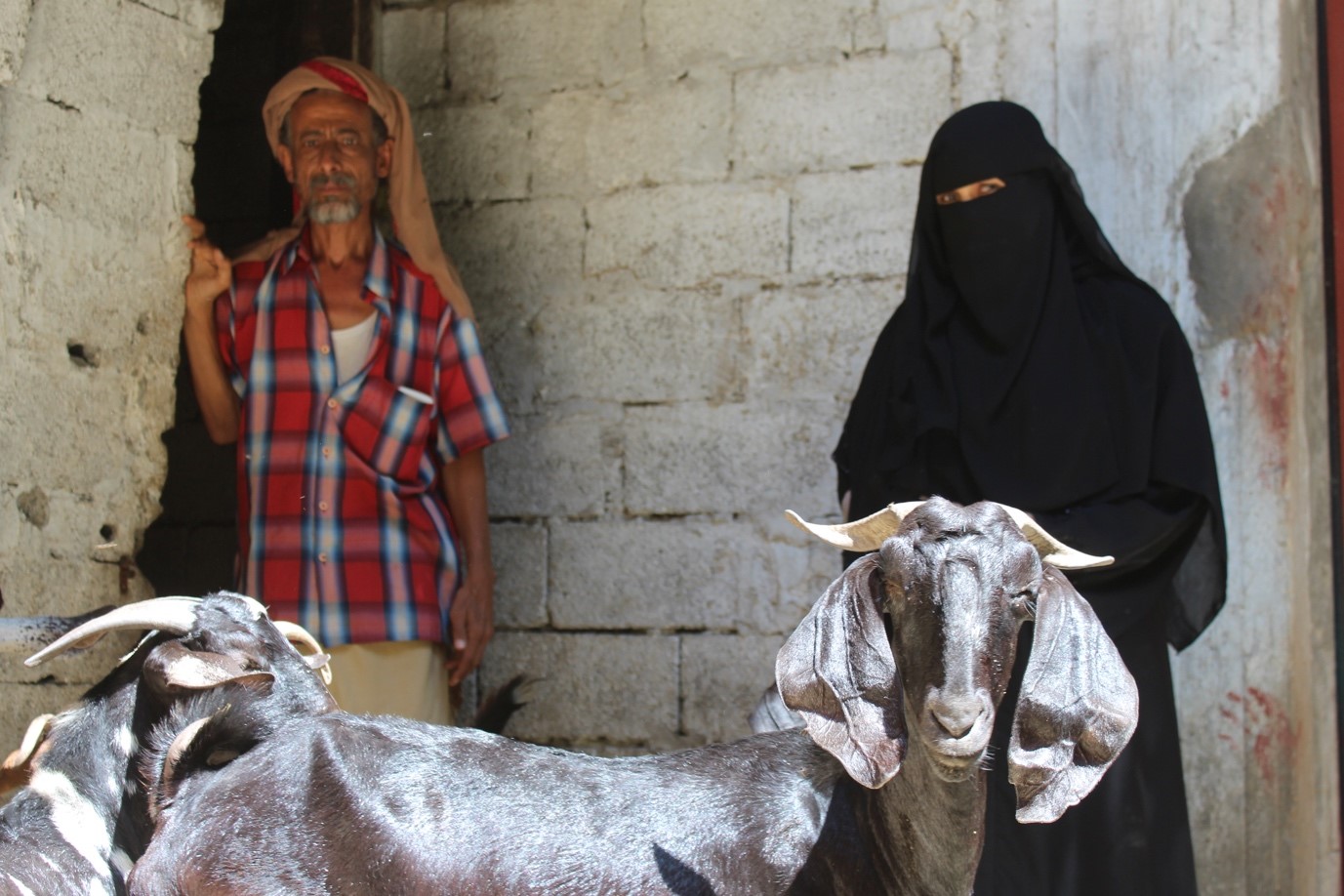Five years since the escalation of the conflict and Yemeni people continue to bear the brunt of ongoing devastation and economic collapse. This war has left over 24 million people in need of humanitarian assistance, of which up to ten million are at risk of famine. Abyan is one of Yemen’s governorates that has been badly affected by the conflict and the economic decline.
Makiya Zain Mohsen, 45 years old, is the only provider for her family of seven, who have been internally displaced twice since before the conflict. When her husband was extremely stressed as a result of their difficult circumstances, he beat Makiya and their young children severely every day. “My husband was out of work and I worked as a domestic cleaner – this was our only source of income,” she says.
Extraordinary events changed Makiya’s life forever. “We heard the aircraft hovering low overhead and airstrikes in the surrounding area, but that was a sound we had become used to,” she says. “We didn’t think we would be a target. Then all of a sudden, we felt a violent explosion as a bomb hit part of our home. The entire house shook.”
In spite of the unspeakable pain and loss they have endured, people like Makiya kindle hope, patching together the fragments of their lives the war has not ripped from them. Makiya and her husband tried to find work in the farms, grazing livestock and selling firewood, but the money they got was not enough to live with dignity.
“Whatever I did it wasn’t enough to make the money I needed,” she says. “Then one of my friends asked me to join an entrepreneurship training provided by CARE and funded by UNFPA. It was a real turning point for me. First I started to learn a new occupation and made new friends; then I was extremely happy when I received a business grant to start my project – selling and raising livestock and poultry.”
“Through the training I learnt how to engage better with customers and how to market my products,” she says.
Makiya started by buying and raising eight goats and ten chickens. After time, she had more than 20 goats and a large number of poultry. Now she makes a good income and is able to support her family. Her sons can go to school as she can pay for their clothes and other items. She hopes to continue improving her business, and wants to establish a butcher shop.
“I thank CARE for supporting me and letting me stand again,” she concludes.

